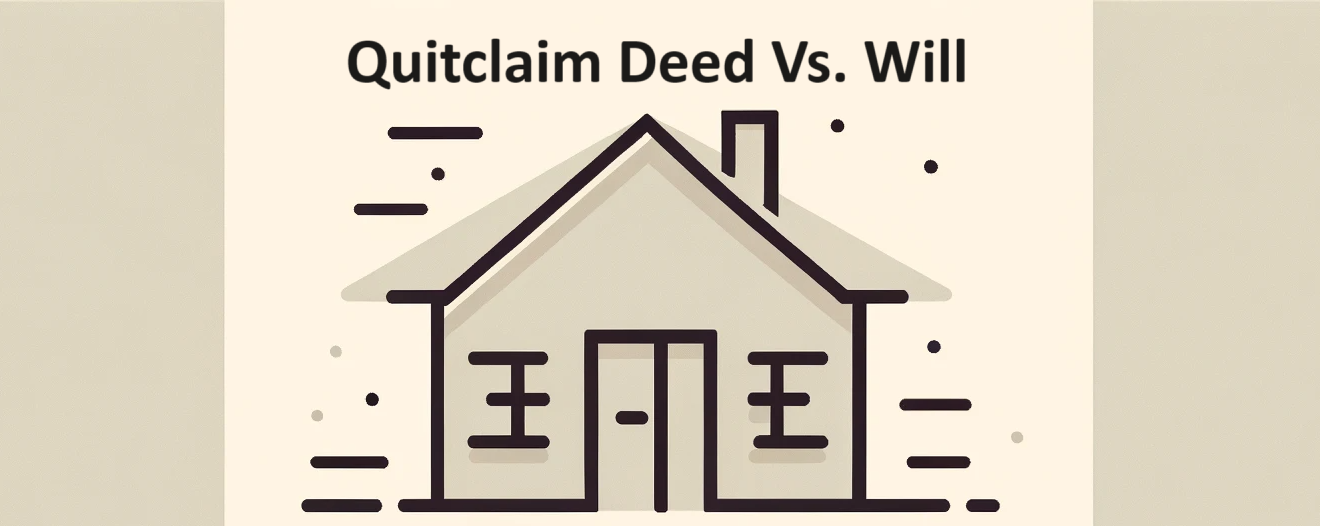Category: Quitclaim Deed
-

Quitclaim Deed Fraud Spikes, Prompting Boston FBI Action and a New Law in Maine
In the real estate world, people continue to talk about an alert published by the Boston Division of the Federal Bureau of Investigation. Its April alert flagged a spike in the improper use of quitclaim deeds. Why the spike? Certainly more boomers are leaving their homes, making theft easier to carry out. And perhaps more…
-

Quitclaim Deeds and Senior Homeowners: Convenience with Caution
When someone wants to know which kind of document makes it easy to pass real estate ownership, the quitclaim deed comes to mind. Convenient? You bet. And quite often, this convenient document is the senior’s deed of choice. This is because so many seniors decide, at some point in their lives, to transfer their homeownership…
-

Transferring a Deed Before the Loan Is Paid Off? Be Mindful of the “Due-on-Sale” Clause
Are you thinking of transferring your deed? You might be quitclaiming the deed to someone you know, or you might be transferring it into a company or trust. Or you might be getting ready to sell. In all of these cases, check the rules on your home loan. If you have a conventional mortgage loan…
-

Can I Take Another Person Off My Deed Without Telling Them?
The question of the day is: I need to take someone off my house deed. Can I do it without calling anyone’s attention to this? Spoiler alert: No. Nor can one owner create a new deed that doesn’t include the other co-owner in order to extinguish that other person’s ownership. No one gives up their…
-

Should I Agree to Put My Partner/Fiancé on the House Deed?
Maybe you’re buying a new home. A home for you and your significant other to live in. Or maybe you already hold a deed, and are thinking of quitclaiming it from your name into both names: you, and your unmarried partner. Perhaps your partner is paying a percentage of the housing costs, and would like…
-

You Can Quitclaim Your Home to a Loved One to Skip Probate Costs. Is It Worth It?
A quitclaim deed easily, quickly transfers your home’s title. You can use a quitclaim to give a home to someone else, with no expectation of a payment from the recipient. Some people use quitclaims to pass homes to their family members. So, is this a good way to carry out your wishes yourself — a…
-

Quitclaim Forgery Is Snatching Florida Homes From Seniors and Dead People
Some people will steal their own mothers’ homes. In a stunning case of deed fraud, a woman named Wanda donned a wig and pretended to be her own elderly mother, then tried to steal her home in Hillsborough County, Florida. A video recording shows Wanda using the Notarize computer-based notary service, signing a quitclaim deed.…
-

Using a Quitclaim Deed: What Are the Drawbacks?
A quitclaim deed is a simple form that transfers a piece of real estate from one person to another. Any homeowner can fill out a quitclaim deed with their name and the name of the recipient, and the property’s existing legal description, sign it in front of a notary and record the document. That effectively…
-

Can a Quitclaim Deed Be Undone?
A quitclaim deed transfers real estate to a new owner. A properly completed and recorded quitclaim cannot be undone. Here’s why — and what to do next if there’s a problem with the transfer.
-

Divorce, Property Division, and the Quitclaim Deed
Parting of the Ways Co-ownership of a house can unwind in several ways. One way is through divorce proceedings. You might be wondering how this works, and what kind of decisions have to be made. You might have questions about passing the home to your ex using a quitclaim deed. Here are some of the…
-

Can I Quitclaim My House Into a Living Trust?
We’re glad you asked. You might have heard that a living trust can… All of the above are reasons many people use this method of passing their property along after they die. And a home is a typical piece of property that people put into a living trust. Importantly, a living trust is a…
-

Texans Welcome New Guidance for Quitclaim Deeds
Adverse Possession Also Clarified Congrats to Texas, where the government just gave a boost to the quitclaim deed! People who receive their homes through recorded quitclaim deeds will now be on firmer ground in the Lone Star State. Here’s what you need to know.
-

Marriage and the Quitclaim Deed
When is a quitclaim a good way to transfer a whole or partial interest in a home? In a simple transaction among familiar parties. Especially where no money changes hands. No wonder quitclaim deeds are often used between spouses. Here, we take a look at a variety of ways quitclaims can convey property between partners…
-

Will Versus Quitclaim: When There’s a Conflict, Who Owns the House?
Usually, the quitclaim deed overrides the instructions in a will. But the devil is in the details. At age 60, Letitia bought her Sacramento home, as a sole owner. Twenty years later, aged 80, Letitia went into a care home. Letitia subsequently signed a quitclaim deed and gave the home to Jackson, the only one…















